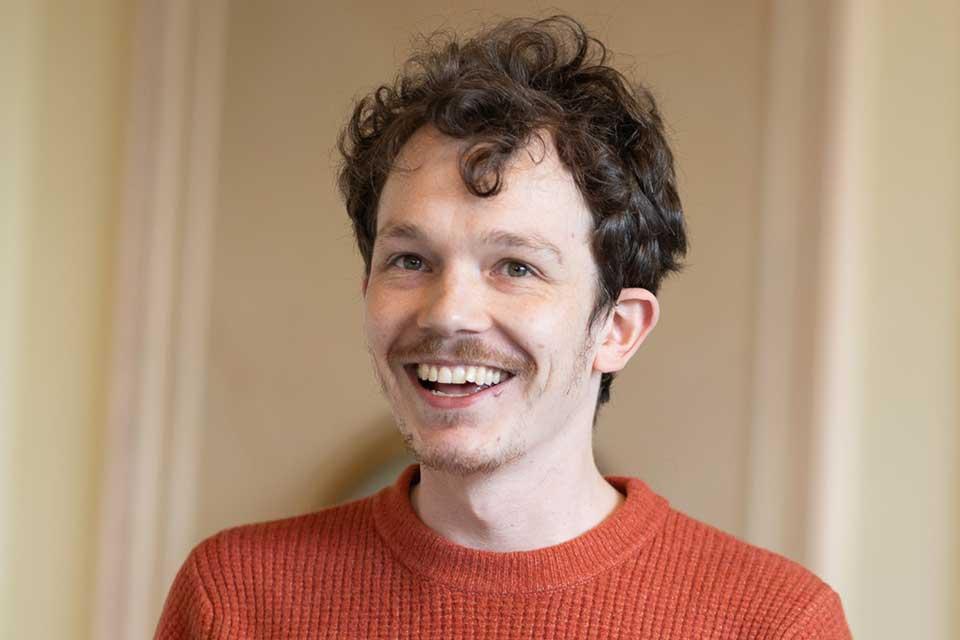Dr Jacob Blackmore from the Department of Physics is one of 11 recipients of an Engineering and Physical Sciences Research Council (EPSRC, part of UK Research and Innovation, UKRI), Quantum Technology Career Acceleration Fellowship. The fellowships have been awarded to emerging UK research leaders – the most promising early career researchers in the UK – and will support them to develop their careers and push the boundaries of their field.
The fellowships are designed to accelerate researchers’ careers and fast-track them towards world-leading positions in the future, ensuring the UK maintains its position as a global force in quantum technology. The investment provides an invaluable opportunity to advance their research and innovation, and will provide opportunities to build connections with industry and end-users, reducing the gap between research and commercialisation.
Professor Charlotte Deane, EPSRC Executive Chair and a Professor in the University of Oxford’s Department of Statistics, said: ‘The Quantum Technologies sector is rapidly growing and evolving, so building a diverse and thriving workforce that can drive this forward is vital to unlocking economic and societal benefits in the future. By investing in the most promising researchers, not only are we boosting quantum skills, but we are also strengthening the research base and ensuring the UK can realise the incredible potential of new quantum technologies.’
Secretary of State for Science and Technology, Peter Kyle said: ‘Quantum – manipulating the universe at its smallest scale – has the potential to save millions for our economy, create thousands of jobs and improve businesses across the country – stopping fraudsters in their tracks, protecting our bank accounts and more. Backing our world-class quantum researchers and businesses is an important part of our Plan for Change.’
Dr Blackmore is a member of Oxford’s ion trap quantum computing group, which explores how useful quantum computers could be constructed based on a platform of trapped atomic ions. Since joining the University of Oxford in February 2021, he has helped develop new technologies for next-generation networked ion-trap quantum computers, which would enable larger networks and more practical operation. This work led to three patents and ongoing investment from Innovate UK, through the MPIT and LINQED consortia, to develop techniques for scalable ion-traps and their vacuum packaging in partnership with Infleqtion (formerly ColdQuanta UK).
Using the EPSRC investment, he aims to develop a quantum simulator based on molecular ions. This will be able to simulate complex phases of matter using the long-ranged interactions and rotational structure of the molecule. Building this device could demonstrate many techniques necessary to use molecular ions in trapped-ion quantum processors, which would enable vastly increased information density in the longer-term.
He said: ‘Since joining the ion trapping group here in Oxford, I have been fortunate enough to learn from an array of world-leading scientists. The EPSRC Quantum Technology Career Acceleration Fellowship is my opportunity to make a significant mark on the group and the quantum technology landscape by bringing my experience of molecular systems into Oxford's excellent quantum computing community. Further, this funding enables me to make real an idea that I have been thinking about for a number of years, a prospect which I am hugely excited about!’

